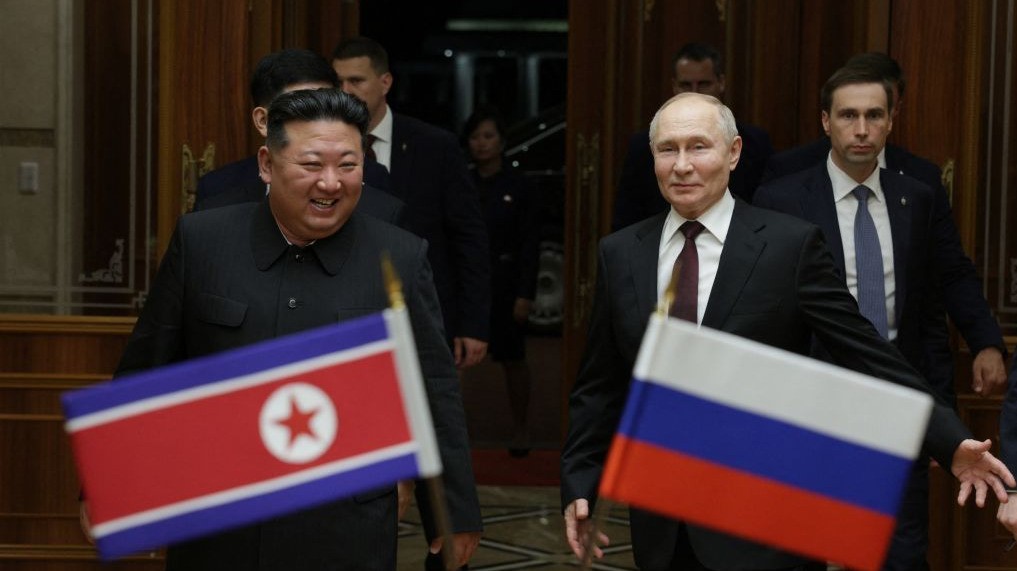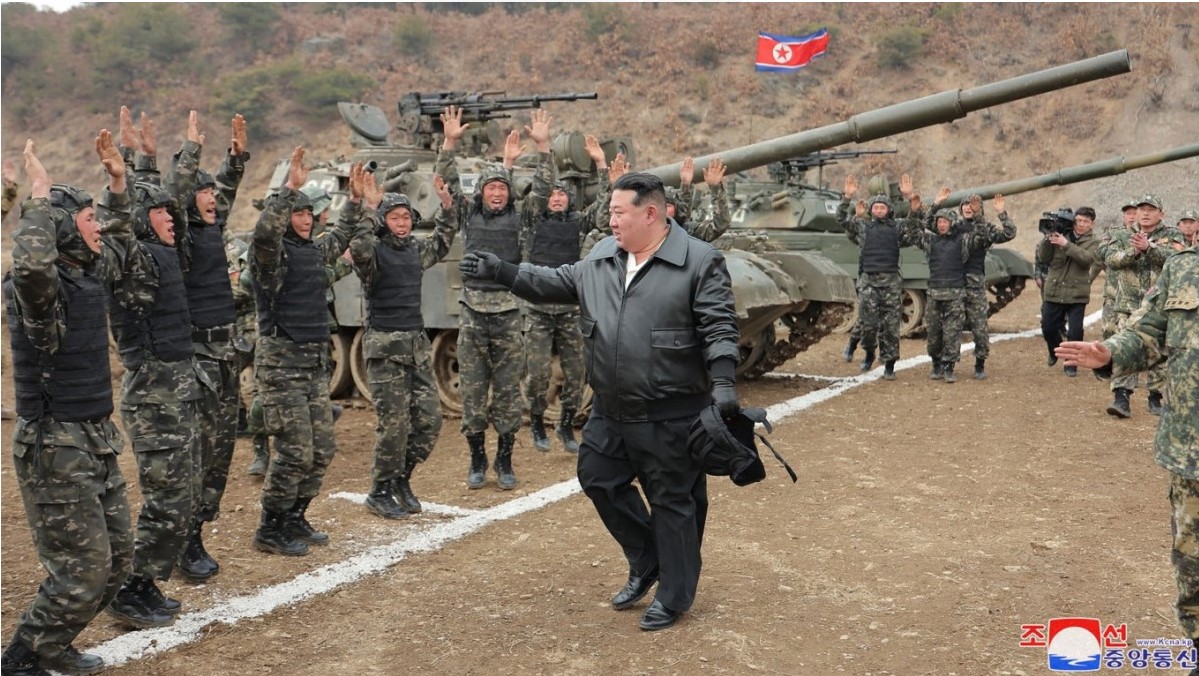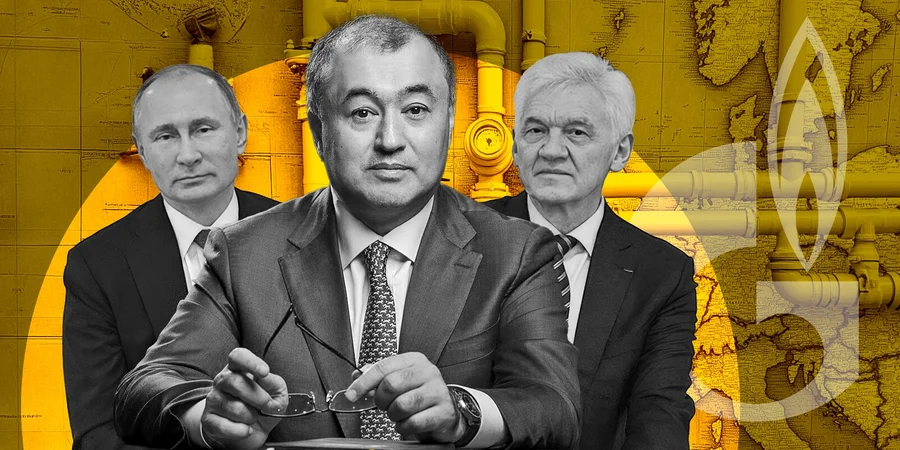North Korea, one of the poorest countries in the world, sent its soldiers to Russia for financial gain without providing them with adequate tactical training or even basic language instruction. This decision ultimately proved to be a strategic miscalculation for Russia, negatively impacting the combat effectiveness and morale of its forces on the battlefield.
North Korea’s economic situation has long been critical. International sanctions, chronic food shortages and widespread hunger have made life in the country extremely difficult. In response to these hardships, Pyongyang has sought ways to ensure its economic survival, including involvement in international conflicts. North Korea sends its soldiers to Russia in the hope of receiving material compensation, access to resources and technology that could help improve domestic conditions.
On the other hand, the Russian army, which is facing manpower shortages due to losses in Ukraine, sees the involvement of North Korean troops as a way to replenish its ranks. The two countries have signed agreements to expand military and economic cooperation, with North Korea receiving food supplies, financial aid and potentially access to advanced Russian technology. This cooperation goes beyond short-term assistance and points to a long-term strategic partnership.
North Korea’s weapons are largely based on obsolete Soviet-era designs and fall short of modern standards. But in a war of attrition such as the one in Ukraine, quantity is often more important than quality. For example, North Korea’s huge stockpiles of artillery and ammunition allow Russia to maintain a high intensity of shelling without depleting its more advanced systems.
North Korea has one of the world’s largest standing armies – over a million troops. The deployment of North Korean troops to Ukraine allows Russia to fill its manpower gap without launching additional mobilisation campaigns, which could carry significant political risks at home.
While Russia is ramping up its production of military equipment and ammunition, the process remains slow due to sanctions and the strain on its industrial base. The use of North Korean resources allows Russia to maintain the current pace of military operations until its own production lines reach full capacity.
The supply of ammunition and troops from North Korea is helping Russia to avoid a slowdown on the front line. This is crucial to prevent Ukrainian forces from regrouping or receiving increased support from the West.
Russia can use North Korea’s outdated equipment and personnel for exhausting missions, while keeping its advanced systems – such as hypersonic missiles or advanced drones – for high-value strikes or future conflicts. Meanwhile, North Korean troops gain valuable combat experience, which is of particular interest to an army that has not fought since the Korean War.
Pyongyang could use this cooperation to obtain Russian technology – such as satellite systems – that would strengthen its position against South Korea and the United States.
However, one of the major challenges facing North Korean soldiers is the language barrier. Many do not speak Russian, which is an insurmountable obstacle to effective coordination on the battlefield. In the context of war, where any mistake can be fatal, poor communication becomes particularly critical. The lack of interaction between Russian and North Korean units leads to confusion and reduced operational effectiveness. In practice, this means that even in cases requiring urgent support or joint attacks, actions can be severely disorganised. Experts note that the battlefield situation is exacerbated not only by the North Koreans’ lack of tactical training, but also by the weak integration of multinational units and the lack of motivation among North Korean soldiers. For example, DPRK troops often show an interest in looting – a behaviour explained by the severe economic conditions in North Korea. The promise of material gain through the seizure of valuables is one of the main motivations driving them into battle. However, this motivation is far from heroic and often leads to theft and looting. Rather than fighting for ideals or military objectives, soldiers pursue short-term gain, further undermining the morale of the army.
A strategic mistake for Russia
According to Admiral Rob Bauer, Chairman of NATO’s Military Committee, North Korea’s involvement in the war is a strategic mistake for Russia. In January 2025, he stressed that “there is no coordination between Russian and North Korean units, largely because of the language barrier. This adds to the difficulties and further undermines the morale of the Russian forces. Numerous cases of miscommunication and failed missions caused by poor coordination undermine confidence in Russia’s overall strategy. In a war where every action and decision counts, the presence of poorly trained North Korean troops only adds to the Russian army’s problems.
Moreover, experts believe that the deployment of North Korean troops to the front line in Ukraine has not only proved to be a strategic mistake, but has also had a negative impact on the morale of Russian forces. Despite attempts to fill manpower gaps, the deployment of undertrained soldiers has led to coordination failures, increased casualties and a decline in morale. Instead of strengthening positions, Russia’s partnership with North Korea has created additional chaos, pushing the prospect of victory further out of reach. Many Russian soldiers are unable to work effectively with their Pyongyang counterparts, which only increases feelings of isolation and discontent. The result is widespread demoralisation: where Russian troops once hoped for a quick victory, they now face the grim reality of relying on ineffective foreign allies.






